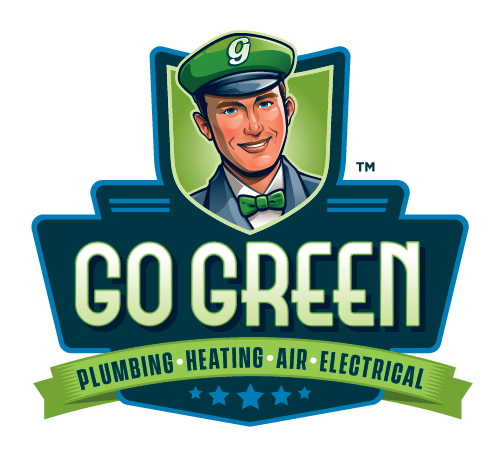We never start our days hoping to encounter a plumbing issue. In fact, plumbing problems often come out of the blue, turning a perfectly good morning into a frantic scramble to find a solution. Whether it’s a clogged drain or a running toilet, these issues can be incredibly disruptive. Fortunately, understanding common plumbing problems and how to prevent them can save you time, money, and a lot of stress.
Common Plumbing Problems in Homes
Your home’s plumbing system is an intricate network of pipes, valves, and fixtures that work together to provide clean water and remove waste. It’s a marvel of modern engineering, but like any system, it’s prone to issues. Knowing the most common plumbing issues can help you keep everything running smoothly.
Dripping Faucets
One of the most common plumbing problems in homes is the dripping faucet. That constant drip, drip, drip not only wastes water but can also be incredibly annoying. The cause is often a worn-out washer or O-ring, which can be easily replaced if you have the right tools and a bit of DIY know-how.
Running Toilets
A constantly running toilet is another frequent issue. This problem often stems from a faulty fill valve or flapper valve, causing water to flow continuously into the toilet bowl. Not only does this waste a significant amount of water, but it can also lead to higher water bills. Replacing these parts can typically resolve the issue.
Clogged Drains
Clogged drains are a nuisance that everyone encounters at some point. From hair in the shower to food particles in the kitchen sink, clogs are common plumbing issues that often cause slow drainage and unpleasant odors. Using a drain snake or natural solutions like baking soda and vinegar can help clear minor clogs. For tougher clogs, you might need the expertise of Go Green’s sewer drain cleaners near Greensboro, NC.
Low Water Pressure
Low water pressure can turn daily tasks like showering and washing dishes into frustrating experiences. This issue can be caused by various factors, including build-up in the pipes, a faulty pressure reducing valve, or problems with the municipal water supply. Checking your fixtures and valves can sometimes solve the problem, but persistent low pressure might require professional help.
Leaky Pipes
Leaky pipes are some of the common plumbing issues. Unfortunately, they can lead to significant water damage and mold growth if not addressed in a quick enough time frame. The causes can range from corroded pipes to high water pressure or a damaged pipe joint. While minor leaks can sometimes be patched up temporarily, a professional plumber should be called to fix the problem properly.
Preventive Measures for Common Plumbing Problems
Since we’re discussing common plumbing problems and how to prevent them, let’s review some practical steps you can undertake to maintain a healthy plumbing system.
Regular Inspections
One of the best ways to prevent common plumbing issues in homes is through regular inspections. Check your plumbing system periodically for any signs of wear and tear, such as dripping faucets, leaky pipes, or slow drains. Early detection can save you a lot of time and money in the long run.
Proper Disposal of Waste
Avoiding clogs starts with proper waste disposal. Never pour grease down the drain, and use a strainer in your sinks to catch food particles. In the bathroom, avoid flushing anything other than toilet paper to prevent clogged toilets. Coffee grounds, food scraps, and other solid wastes should be thrown in the trash or composted instead of going down the drain.
Water Heater Maintenance
Water heaters are essential for comfort in our homes, but they require regular maintenance to function efficiently. Flushing the tank annually to remove sediment build-up can prolong the life of your water heater and improve its efficiency. Additionally, inspecting the pilot light and checking for any hot water heater troubles like unusual noises or leaks can help catch issues early before they turn into costly repairs.
Protecting Pipes from Cold Weather
Frozen pipes are a major concern during the colder months, as they can burst and cause significant damage. To prevent this, insulate your pipes, especially those in unheated areas like basements or garages. When temperatures drop, let your faucets drip slightly to keep water moving, and open cabinet doors to allow warm air to circulate around the plumbing.
Installing a Pressure Reducing Valve
High water pressure can strain your plumbing system and lead to leaks or bursts. Installing a pressure reducing valve can help maintain a safe water pressure level in your home, protecting your pipes and fixtures from damage.
Avoid Using Chemical Drain Cleaners
While chemical drain cleaners might seem like a quick fix for clogs, they can actually cause more harm than good. Harsh chemicals can damage pipes and lead to bigger plumbing issues down the line.
Your Plumbing Deserves the Best Care
Being aware of common plumbing problems and how to prevent them is important if you want to maintain a well-functioning home. By knowing when to call a professional, you can avoid many of the headaches that come with plumbing issues.
Plumbing problems can be a major hassle, but with a little preventive care and timely intervention, you can keep your home’s plumbing system running smoothly. If you encounter issues that are beyond your DIY skills or need professional assistance, don’t hesitate to schedule service with Go Green.
Our experienced plumbers are qualified to tackle any plumbing problem you face, so rest assured we have what it takes to keep your home comfortable and functional.
Whether you’re facing a clogged toilet, need emergency plumbing repairs, or are looking for water tank installers, Go Green is your trusted partner for all your plumbing needs. Contact us today!

